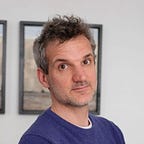Immanuel Kant: Dare to Think
The Enlightenment Philosopher’s Rational Revolution
In 1783 writers in Europe were starting to use a new word. “Enlightened.”
The Reverend Johann Friedrich Zöllner, an official of the Prussian Government, took issue with the use of the word. Attacking a pro-Enlightenment article in the pages of the Berlinische Monatsschrift, he goaded its liberal readers with a rhetorical question:
“What is enlightenment? This question, which is almost as important as what is truth, should indeed be answered before one begins to enlighten! And still I have never found it answered!”
Several readers responded. Among them was Immanuel Kant (1724–1804), whose essay began with the now-famous definition: “Enlightenment is man’s release from his self-incurred immaturity.”
Kant projected a sense of personhood on humanity. Enlightenment was growing up. What really allows us to grow up? Not necessarily the physical changes we undergo. We can still remain immature into adulthood. For Kant, the key to the maturity of humankind, like any person, was courage.
He wrote:
“Immaturity is man’s inability to make use of his understanding without direction from another. This immaturity is self-imposed when its cause lies not in lack of reason but…
